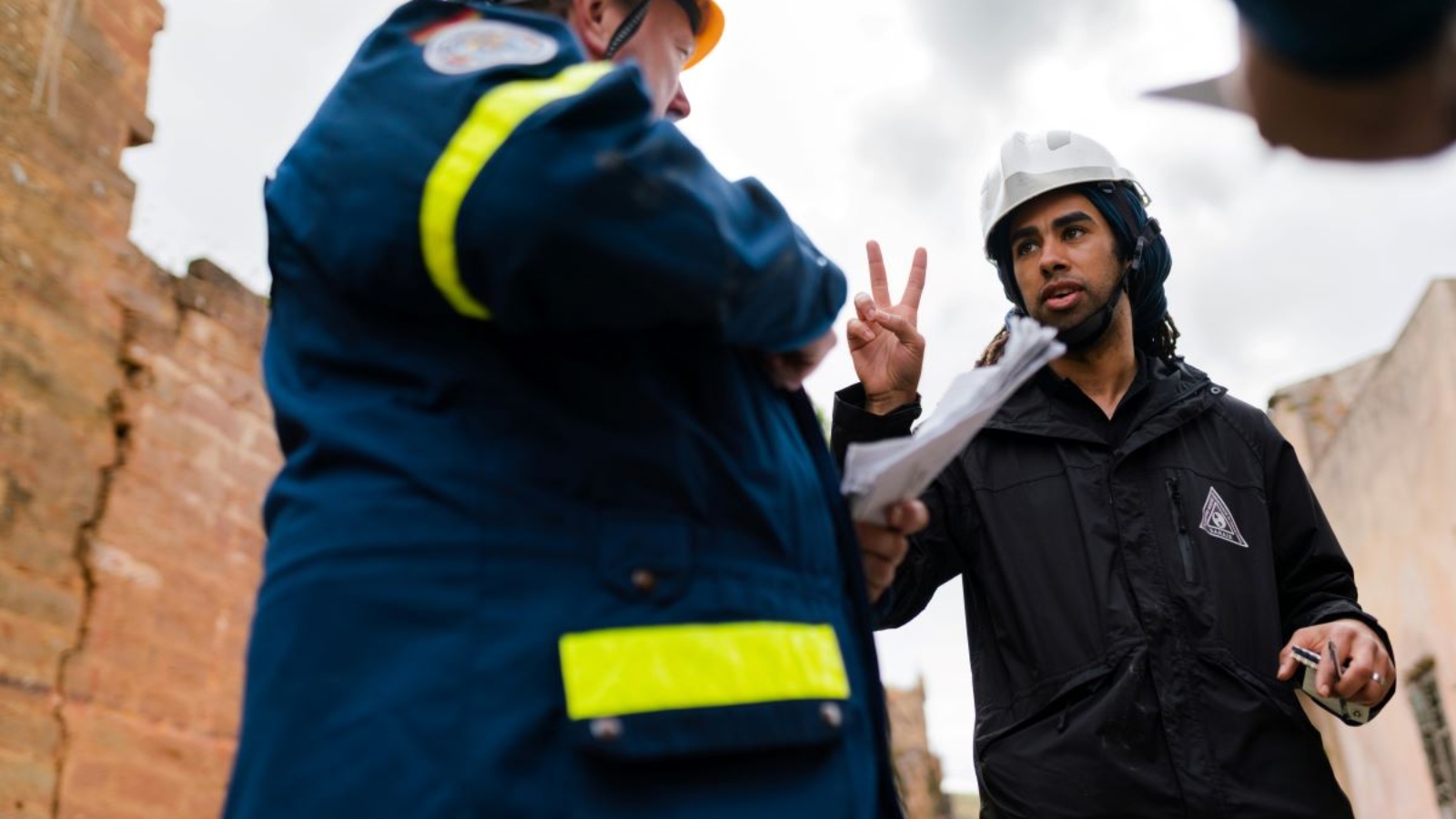Understanding the job of a survey engineer
A survey engineer plays a pivotal role in the vast expanse of infrastructure development. Their primary responsibility is to measure and map the earth’s surface, providing essential data that informs the planning and execution of construction projects. This profession requires a combination of technical expertise, analytical skills, and a thorough understanding of various surveying techniques.
Survey engineers primarily use advanced technologies such as GPS, geographic information systems (GIS), and total stations to gather and analyse data. Their work supports a multitude of infrastructure projects, from roads and bridges to tunnels and railways, ensuring that these developments are grounded in accurate information. In addition to these high-tech tools, survey engineers often employ traditional methods such as triangulation and levelling, which remain vital for certain applications, particularly in remote or less accessible areas where modern technology may face limitations.
Key responsibilities of a survey engineer
The specific responsibilities of a survey engineer can vary depending on the project and the stage of development. However, some key tasks include:
- Conducting land surveys to determine property boundaries and topography
- Collecting data related to land features, elevations, and existing conditions
- Producing detailed maps and reports that inform project design
- Collaborating with architects, engineers, and construction teams to ensure project accuracy
- Monitoring any changes to the land during and after construction
These responsibilities highlight the critical role that survey engineers play in laying the groundwork for successful infrastructure projects. Their data allows teams to make informed decisions at every level of development. Furthermore, survey engineers often engage in site assessments before construction begins, identifying potential challenges such as soil stability or environmental concerns that could impact the project’s feasibility. This proactive approach not only enhances safety but also contributes to the sustainability of the construction process.
Required skills and qualifications for survey engineers
To become a successful survey engineer, one must possess a unique blend of skills and qualifications. Typically, a bachelor’s degree in surveying, civil engineering, or a related field is essential. Additionally, obtaining a professional licence is often required to practice as a survey engineer legally.
Alongside formal education, a survey engineer should be adept in various technical skills, including:
- Proficiency in surveying instruments and software
- Strong analytical and mathematical skills
- Attention to detail and accuracy
- Effective communication to collaborate with multidisciplinary teams
Continuous professional development is also critical in this field, as emerging technologies and survey methods evolve consistently. Survey engineers are encouraged to engage in workshops and training sessions that focus on the latest advancements in surveying technology, such as drone surveying and 3D laser scanning. These innovations not only enhance the precision of data collection but also streamline the overall surveying process, allowing for quicker project turnaround times. Moreover, a strong understanding of regulatory frameworks and environmental legislation is increasingly important, as survey engineers must navigate complex legal landscapes to ensure compliance throughout the project lifecycle.
The importance of survey engineers in infrastructure development
The contributions of survey engineers extend far beyond simple measurements; they are integral to the success and efficiency of infrastructure development. Their work ensures that projects are built upon accurate data, reducing the likelihood of complications during later stages.
Survey engineers serve as the backbone of any construction project, integrating various pieces of information into a coherent picture that guides teams throughout the development process. Their expertise not only enhances project quality but also elevates safety standards in the construction industry.
Ensuring accuracy in construction projects
Accurate surveying is fundamental in the construction industry. Survey engineers meticulously map out the terrain and provide precise measurements, ensuring that structures are built according to specified plans and regulations. Any inaccuracies in data can lead to misalignments, structural weaknesses, or even complete project failures.
The survey engineer’s ability to preemptively identify potential issues is vital. By conducting thorough surveys, they can forecast challenges related to land conditions, such as unstable soil or potential flooding areas, allowing construction teams to make informed modifications before work begins.
Mitigating risks and preventing costly mistakes
Risk management is another critical aspect of a survey engineer’s role. By providing precise data and analysis, survey engineers help to prevent costly mistakes that can arise from miscalculations or inaccurate maps. Projects that ignore the importance of accurate surveying often find themselves facing significant delays, unexpected costs, and safety hazards.
For instance, if a survey engineer identifies a risk factor, such as subsurface water issues, they can recommend proactive measures to mitigate these risks before construction starts. This foresight can save time, money, and resources, proving the indispensable value of survey engineers in infrastructure development.
Furthermore, survey engineers employ advanced technologies such as Geographic Information Systems (GIS) and 3D laser scanning, which enhance the precision of their work. These tools allow for the collection and analysis of vast amounts of data, enabling survey engineers to create detailed models of the project site. Such models not only assist in visualising the final outcome but also facilitate better communication among stakeholders, ensuring that everyone involved has a clear understanding of the project’s scope and potential challenges.
In addition to technical skills, survey engineers must also possess strong problem-solving abilities and a keen understanding of environmental regulations. Their role often requires collaboration with environmental scientists and urban planners to ensure that projects comply with local laws and sustainability practices. This interdisciplinary approach not only enhances the quality of infrastructure but also contributes to the preservation of natural resources, demonstrating the multifaceted impact of survey engineers on modern construction initiatives.

The survey engineer’s role in different stages of infrastructure development
The involvement of survey engineers spans across various stages of infrastructure development, and their contributions are crucial to the success of each phase. Their skills not only facilitate the initial planning but also play a role throughout the entire lifecycle of the project.
From conceptualisation to maintenance, survey engineers provide the essential data and analysis required to ensure that infrastructure developments are compliant, efficient, and sustainable.
Involvement in the planning stage
During the vital planning stage, survey engineers gather topographical and geospatial data that informs the design of the project. This information allows planners to understand the existing landscape and make crucial decisions about placement, alignment, and resources.
By conducting detailed surveys and producing maps with layers of data, survey engineers help architects and project managers create effective designs that account for natural features, accessibility, and regulatory requirements. Furthermore, their expertise in geographic information systems (GIS) enables them to analyse spatial relationships and predict potential environmental impacts, which is increasingly important in today’s context of climate change and sustainability. The integration of such advanced technologies into the planning process not only enhances the accuracy of the data collected but also supports more informed decision-making, ultimately leading to more resilient infrastructure.
Contribution during the construction phase
During the construction phase, survey engineers continually engage with the project to ensure compliance with plans and specifications. They provide essential support by performing regular site surveys, checking elevations, and verifying dimensions to maintain alignment with original designs.
Their expertise not only contributes to the immediate quality of work but also fosters a culture of safety on-site. By monitoring any variances from planned measurements, survey engineers can alert construction teams to potential issues before they escalate, ensuring corrective actions are taken timely. Additionally, their role often extends to liaising with contractors and subcontractors, ensuring that all parties are aligned with the project’s objectives. This collaboration is vital in mitigating risks and optimising workflows, ultimately leading to a more streamlined construction process that adheres to budget and timeline constraints.
Role in the maintenance and improvement of infrastructure
Once a project is completed, the role of a survey engineer does not cease. Instead, they play a significant part in the maintenance and improvement of infrastructure. Regular surveys and assessments can reveal wear and tear, structural integrity issues, or changes in land use that may affect the infrastructure.
Survey engineers provide essential data that aids in planning future upgrades or repairs, ensuring that infrastructure remains safe, functional, and efficient. Their ongoing involvement helps extend the lifespan of many essential structures across the landscape. Moreover, as urban environments continue to evolve, survey engineers are increasingly tasked with integrating new technologies, such as drone surveying and 3D laser scanning, into their maintenance routines. These innovations not only enhance the precision of their assessments but also allow for more comprehensive monitoring of infrastructure health over time, thereby facilitating proactive maintenance strategies that can significantly reduce long-term costs and improve service delivery to the public.
The future of survey engineering in infrastructure development
The field of survey engineering is rapidly evolving, driven by advancements in technology and changing demands within the infrastructure sector. These developments not only reshape the ways in which survey engineers operate but also point to an exciting future for the profession.
As society leans increasingly towards digital solutions, survey engineers find themselves at the forefront of integrating new technologies such as drones, 3D scanning, and real-time data analytics into their work. This shift is revolutionising traditional methods, making surveying more efficient and accurate. You may like to know about the benefits of surveying engineering in Large-Scale Projects let’s visit https://especiallyforyouhomedecor.com/the-benefits-of-surveying-engineering-in-large-scale-projects/
Technological advancements impacting the profession
Technological advancements have had a profound impact on survey engineering. Tools like drones enable survey engineers to gather vast amounts of data from hard-to-reach areas, while software for data processing allows for more sophisticated analyses and visualisations.
The use of augmented reality (AR) and virtual reality (VR) is also gaining traction, allowing survey engineers and construction teams to visualise projects in their actual environments before ground is even broken. Such innovations are not only increasing efficiency but improving overall project outcomes significantly.

The increasing demand for survey engineers in infrastructure projects
The growing global emphasis on infrastructure development, coupled with the need for sustainable and resilient projects, has resulted in heightened demand for skilled survey engineers. Governments and private sectors alike are investing in infrastructure to support economic growth and cultural advancements.
As projects become more complex, the significance of survey engineers continues to rise. Their expertise in ensuring accuracy, mitigating risk, and facilitating communication among stakeholders positions them as invaluable assets in any infrastructure project.
In conclusion, survey engineering is a critical profession at the heart of infrastructure development. As the world navigates through technological advancements and increasing project demands, survey engineers will undoubtedly continue to play a key role in shaping the landscapes of the future.

